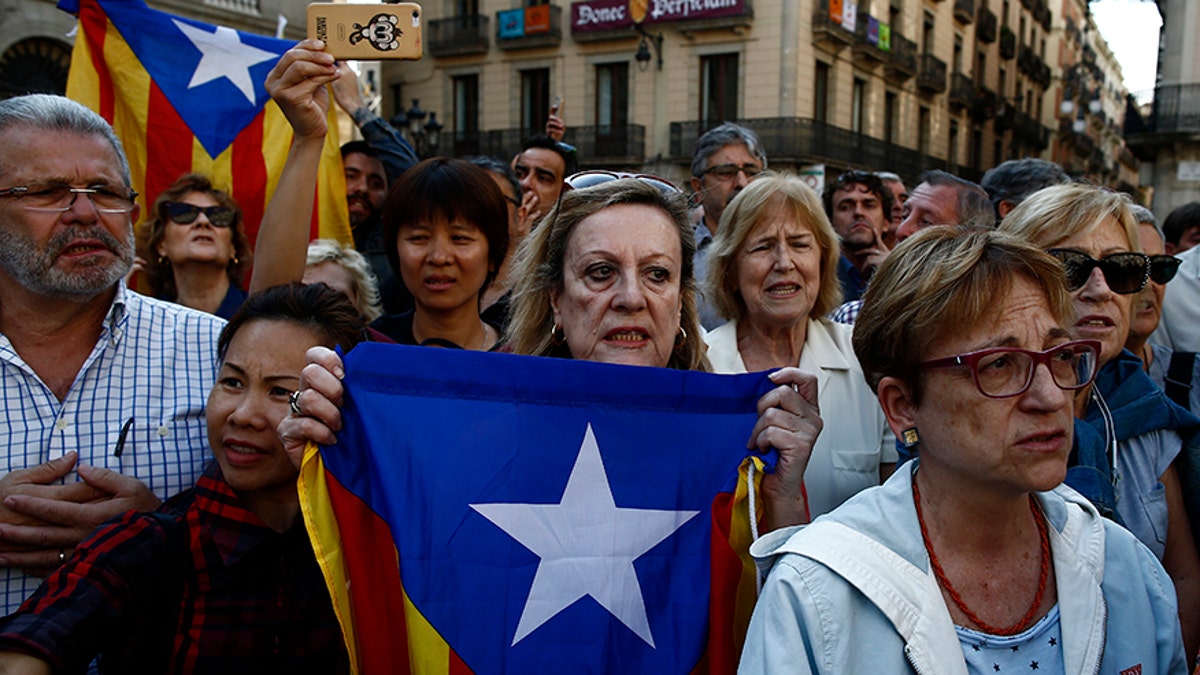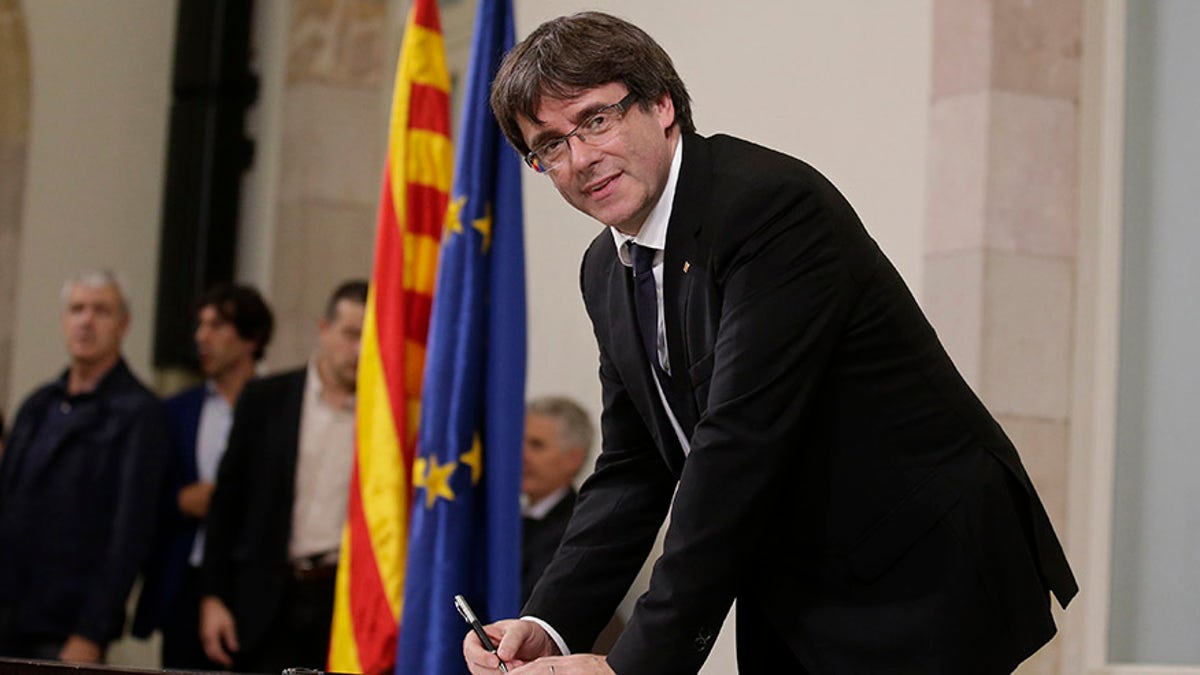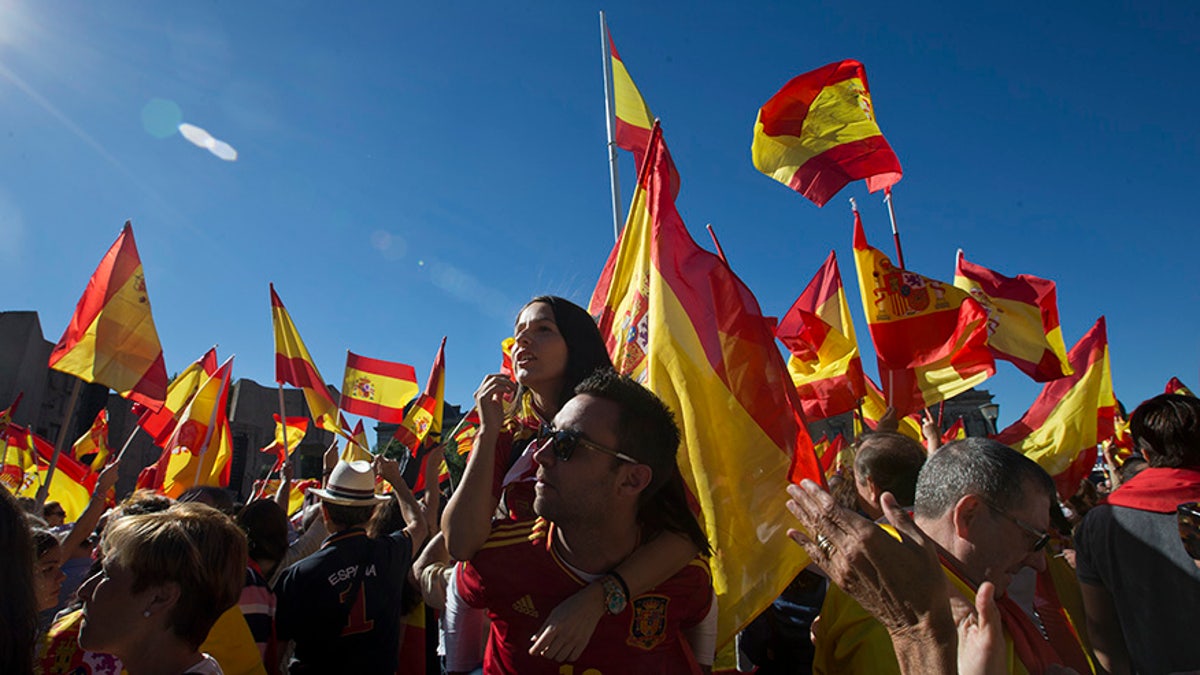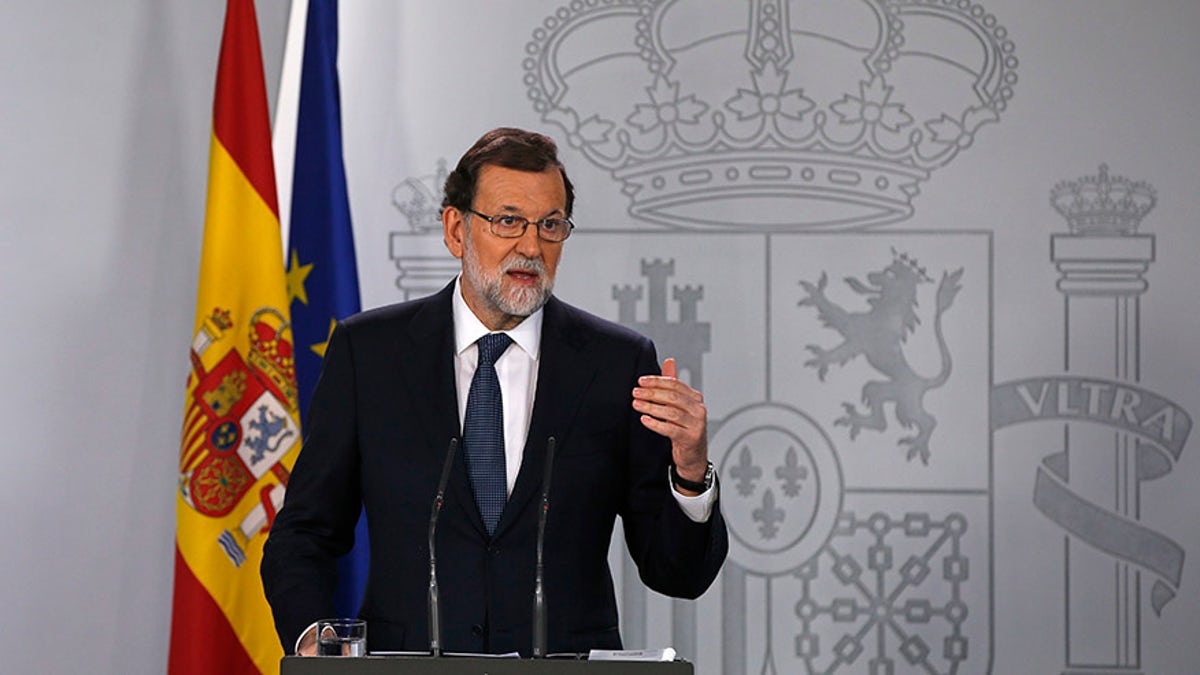
Pro-secession Catalan groups are calling for protests as the Spanish government moves to take control of the region's semi-autonomous powers. (AP Photo)
The gridlock between Catalonia and Spain’s central government continues as tense as ever after the country’s top court officially ruled the highly disputed independence referendum was illegal.
Spain’s Constitution Court said Tuesday the regional law that backed the referendum goes against national sovereignty and the “indissoluble unity of the Spanish nation.”
The court added that the Catalan regional parliamentary session in early September that approved the “self-determination referendum law” also violated the country’s constitution.
Tuesday’s ruling was not surprising –it had earlier suspended the law temporarily while judges assessed the Spanish government’s objection to it.

Catalan regional President Carles Puigdemont signs an independence declaration document after a parliamentary session in Barcelona, Spain, Tuesday, Oct. 10, 2017. Puigdemont says he has a mandate to declare independence for the northeastern region, but proposes waiting "a few weeks" in order to facilitate a dialogue. (AP Photo/Manu Fernandez) (Copyright 2017 The Associated Press. All rights reserved.)
Despite this, Catalan regional leaders went ahead with the Oct. 1 referendum on whether the region should separate from Spain. They say the “Yes” side won and that the result gave the region a mandate to declare independence.
"We are facing an executive power in the state that uses the judiciary branch to block the legislative," Catalan government spokesman Jordi Turull told reporters shortly after the court’s ruling was announced.
Catalan President Carles Puigdemont made an ambiguous statement about the region's future last week, saying he has the mandate to declare independence — but would not immediately move to implement it to allow time for talks and mediation.
Puigdemont now has until Thursday to backtrack on any steps the region has taken toward secession. If he refuses, the central government has said it would invoke constitutional authority to restrict or revoke the areas of self-governance Catalonia has now.
Turull said Catalonia wouldn't "surrender" in its secession bid and renewed a call for talks with central authorities on what he called "a democratic mandate" to break away from Spain.

Spaniards pack Colon Square in Madrid, Spain, Saturday, Oct. 7, 2017. Thousands of pro-Spanish unity supporters donning Spanish flags have rallied in a central Madrid plaza to protest the Catalan regional government's drive to separate from Spain. (AP Photo/Paul White) (Copyright 2017 The Associated Press. All rights reserved.)
Spain has said that no dialogue can take place with independence on the table because a reform of the country's Constitution with an ample majority in the national parliament is the only legal way to achieve secession by a region.
Spain is backed by the international community, which has said Catalonia must act with respect for Spain's laws.
Catalonia, meanwhile, is battling to win external support and is trying to paint an image of Spain as an undemocratic and repressive state.
Speaking Friday, Catalonia's International affairs director, Raul Romeva, said Spain "doesn*t have a problem in Catalonia. Spain has a problem with democracy, one that affects citizens in Europe as well."
Tuesday's ruling came a day after a Madrid judge provisionally jailed two Catalan independence leaders, Jordi Sanchez and Jordi Cuixart, in a sedition probe.
The judge ruled they were the orchestrators of massive demonstrations Sept. 20-21 in Barcelona that hindered a police operation against preparations for the Oct. 1 independence referendum.
Turull said the jailing showed how central authorities are choosing "repression over dialogue."

Spain's Prime Minister Mariano Rajoy gestures as he speaks during a press conference at the Moncloa Palace in Madrid, Spain, Wednesday, Oct. 11, 2017. The Spanish Cabinet met in Madrid Wednesday to work out its response to an announcement from the head of the wealthy Catalonia region that he was proceeding with a declaration of independence, further fueling Spain's worst political crisis in decades. (AP Photo/Paul White) (Emilio Morenatti)
Protesters were gathering for a new round of demonstrations in Barcelona on Tuesday to demand their release.
About 500 students left classrooms in one of Barcelona's main universities to join the demonstrations.
"We urge the release of our political prisoners and call on Catalan authorities to revoke the suspension of the independence declaration and proclaim the Catalan republic," said Aina Delgado Morell, a representative of Universitats per la Republica, a pro-independence student organization.
Students would keep protests going to "stop the repression by the Spanish state," she added.
Spanish Justice Minister Rafael Catala said the jailing was due to the fact that two are suspected of having committed a crime of hampering a judge's orders. He rejected the term "political prisoners," saying instead it could be considered a case of "politicians in prison."
The Associated Press contributed to this report.